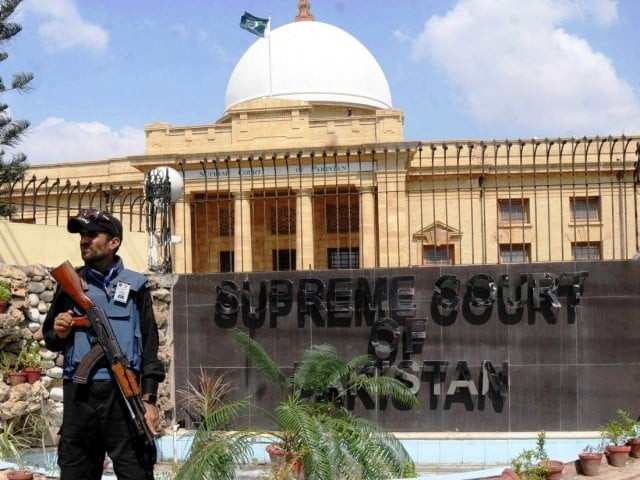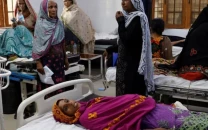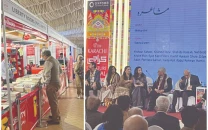Sindh LG Ordinance challenged in Supreme Court
System would bitterly divide rural and urban populace, would lead to more complexities in society, states petition.

Sindh LG Ordinance challenged in Supreme Court
The petition, which was filed in the Supreme Court’s Karachi Registry by ‘City Alliance’ petitioner Syed Muhammad Iqbal Kazmi of Pakistan Qaumi Movement, maintains that the ordinance’s promulgation while assemblies are present is against the law.
The petition stated that the “system would bitterly divide the rural and urban populace and would lead to more complexities in society” and that there would be two different systems in one single province.
The petitioner cited Governor Sindh, Chief Minister Sindh, Sindh Secretaries Law, Local Government Chief Secretary as respondents in the petition.
He maintains that both Mutahidda Qaumi Movement (MQM) and ruling Pakistan Peoples Party (PPP) remained in negotiations for almost two years during which 15 sessions of the provincial assembly were held.
A number of legislations including the Private Partnership Bill, Sindh Zakat Bill and Indus University Bill were introduced but the Local Government Bill was not tabled.
The petitioner maintains that there was no emergency situation in the province as for the almost four years, coalition partners had remained silent.
He said that suddenly, a discriminatory law was passed in the dark of the night to the detriment of the interest of the general public at large.
The ordinance, as per the petition, is in violation of “Articles 4, 5, 8, 25, 32 and 140”.
The articles mentioned in the petition are fundamental rights of individuals, following the Constitution, laws inconsistent with or in derogation of fundamental rights to be void, equality of citizens, the promotion of local government institutions, and the devolution of political, administrative and financial responsibility and authority to elected representatives of the local governments.
The ordinance states that civil defence, community development and organization, road networks for fisheries in the cities, civil welfare, games and sports board, culture, primary schools, technical education, finance and planning, basic health departments, chidren and womens’ health and other departments have been given to metropolitan corporations.
Other departments include Karachi Municipal Corporation (KMC) and Karachi Development Authority (KDA) land departments as well as the collection of property tax and other charges.
Health and safety systems, water treatment plants, sewerage system and drainage boards will also come under the same.


















COMMENTS
Comments are moderated and generally will be posted if they are on-topic and not abusive.
For more information, please see our Comments FAQ